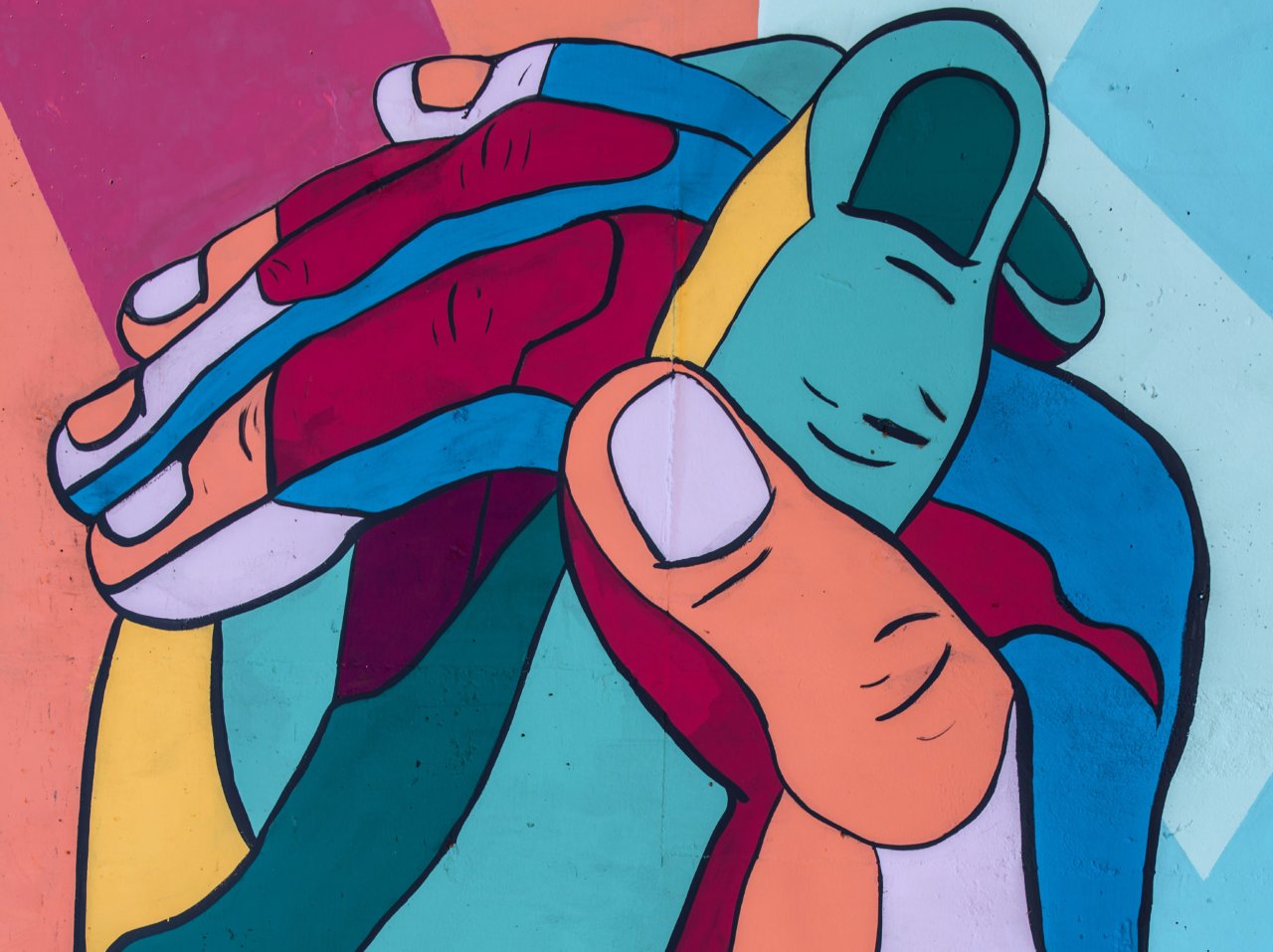
Matters of race, culture and power were high on the agenda at the start of Pilotlight.
In 1988, Pilotlight orchestrated an Africa / Australia Exchange in which a delegation of East African pastoralists visited Australia and a group of Indigenous Australians visited East Africa to learn from each other by sharing perspectives in common on land rights.
"I always felt that we had more to learn from them, than they from us,"
explained Jane Tewson, our founder.
In more recent years, we have focused on the UK, looking to bring skills in to support the voluntary sector. But we simply haven’t done enough to champion diversity in the way that Jane Tewson envisioned.
We have had a tendency to romanticise small charities. The evident reality is that the sector must be more inclusive. We want a stronger voluntary sector, but on diversity, the sector has to change too. As do we, we have to be part of this. We accept that the make-up of our leadership reflects the kind of white privilege that has failed to address diversity to date.
So, over the course of the last six months, we have been running a working group on diversity, equity and inclusion, with staff champions and input from trustees and partners to explore our strengths and weaknesses and look at how we can build a practical action plan. And, as with all good plans, we want to report on our actions and targets as we go – this is a start – and in line with that, we will join Inclusive Employers and work with this network to develop our practice.
Our vision is that Pilotlight becomes an effective champion for equalities and against racism, building our knowledge and networks to support this. We would:
- reflect this in the diversity of our key constituencies, including Pilotlighters and our charity partners, valuing the insights that difference brings and supporting each in terms of learning and development on diversity.
- build on our current competencies around bridging worlds and facilitating processes to achieve mutual learning, making diversity, equity and inclusion key to our success.
- have internal expertise on equalities, both for the management of our programmes but also for the base of guidance and knowledge that we draw on to support charity partners – so for example, gender-blind recruitment or the development of leadership and governance with lived experiences of disadvantages.
In terms of steps to realise this, first, we need to be working with charities that reflect more of a focus on diversity.
Because of the sector’s ethos and values, there is a predisposition to assume there are good intentions and not poor practice. But as Mita Desai of Young Trustees suggests, it is telling that one in twelve charity trustees is called John or David. The statistics are that 92% of trustees are white, two thirds are male, and they are typically older. The proportion of charity CEOs that are white is similar. ACEVO collects ethnicity data in its annual CEO Pay and Equalities Survey. In 2018, 3% of respondents reported being from a BAME background rising to 6% in 2019. In Pilotlight’s 2019 End of Engagement Questionnaire, 6% of charity leaders were from BAME backgrounds. This is the same as ACEVO’s headline figure for 2019, indicating that the ethnic diversity of the charity leaders Pilotlight supports is currently representative of the wider sector, but no more so.
Alongside this, there are challenges working within the sector. The report ‘Home Truths’ published in June 2020 by ACEVO and Voice4Change England confirms the extent of this:
- Close to 70% of BAME people working in charities had either experienced, witnessed or heard stories about racism in the charity sector
- Just 20% of respondents who made complaints about racism felt that these were dealt with satisfactorily
- White staff struggle to speak about race and worry that their language is incorrect or insensitive. There is a lack of understanding about whiteness and privilege.
Second, within the sector, there are then organisations that are accelerators for race equality, or for other protected characteristics and Pilotlight could choose to focus on these organisations to target its support.
The evident skewed profile of impact of COVID-19 in 2020, on grounds of race but also class, has led to a more rigorous and open embrace by funders of support for charities and social enterprises that are working with and reflective of Black, Asian and Minority Ethnic (BAME) communities. There will be ambiguities around this, of course, in the sense that a charity with a BAME CEO, for example, does not mean that the focus of the charity is on equalities. But there are organisations for whom this is the focus and they are charities who need appropriate support as any others do, more so if funders are playing catch-up in terms of support for them. In the 1980s, BAME-led organisations often had a core focus of ‘speaking truth to power’ about racial injustices that their communities faced, but over time this has changed, and many are increasingly professionalised, delivering culturally appropriate services to communities. We will research their needs, share the results and build our understanding of where we can make the most difference.
Third, we need to build the diversity of our base of skills. The current data is that, of our Pilotlighters, 44% are female and 14% were Black, Asian and Minority Ethnic. We recognise wider skills through the Bursary Pilotlighter model with charity leaders and an option would be to extend this (and look at resource options around the funding of this) to widen our Pilotlighter community by bringing in voices and skills reflective of diversity – which could include, for example, those with lived experience of poverty.
Working with companies, where there is likely to be an institutional agenda in favour of diversity, may make it easier to widen our pool of Pilotlighters. Ethnic representation was better amongst Pilotlighters (and charity leaders too) on our programmes with some of our corporate partners than it was amongst participants on the Pilotlight 360. This could be seen as a glimpse into the future of corporate leadership. Research on corporate charity partners in October suggested that 74% of companies and 85% of charities expect their organisations to make a strong response to the Black Lives Matter movement.
Diversity can challenge and inspire us in so many ways – ageism, for example, can limit the contribution of older people and yet business start-ups in recent years are higher among older people than those out of university. The idea of intergenerational design and an ‘age of no retirement’ turns the challenge of ageism on its head, seeing an opportunity to widen the base of people who are seen to contribute to society. Similarly, if we are looking for people with business skills who have stepped out of full-time work, we could look to build recruitment campaigns to attract people with disabilities, who might be more represented in that target segment. There is an important, emerging recognition, too, of the relevance of ‘intersectionality’ – the way in which overlapping dimensions of inequality or discrimination call for tailored action and understanding.
So, the fifth step to putting diversity at the core of our future strategy is one of empowerment and partnership with key actors within the relevant space that we are working with. We will reflect this within our Trustee Board, with recruitment in train to address our current lack of diverse representation. We will also look to scope and test a possible Rising Star programme, supporting younger, emerging and future BAME leaders with engagement through Pilotlight. We will explore how we can be active in wider campaigns to challenge racism and promote diversity, equity and inclusion.
In short, we are working to improve on something that we should have been better at addressing for a time.
We need to make sure that we are operating with good practice. That takes focus. We then need to build ways of operating with best practice. That takes resource. But to be transformative, the essence of diversity, equity and inclusion, we need to widen the ‘we’. That takes commitment.
Sally Bailey, Ed Mayo & Bruce McCombie
